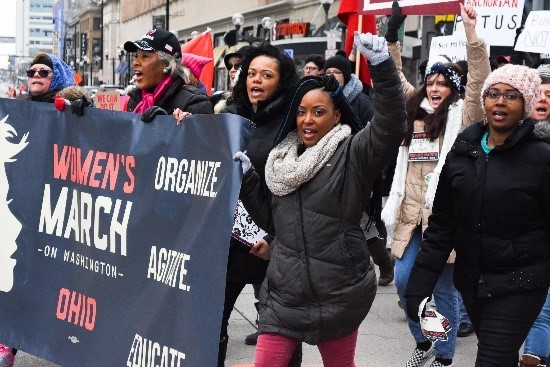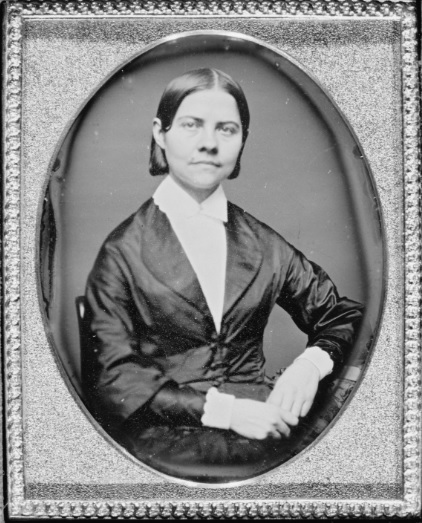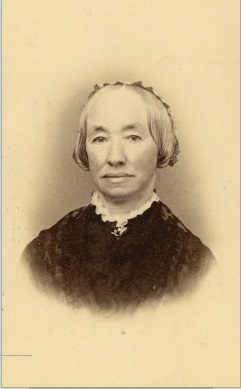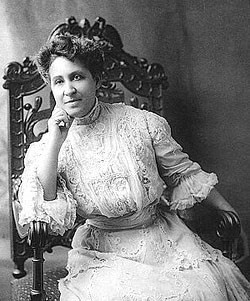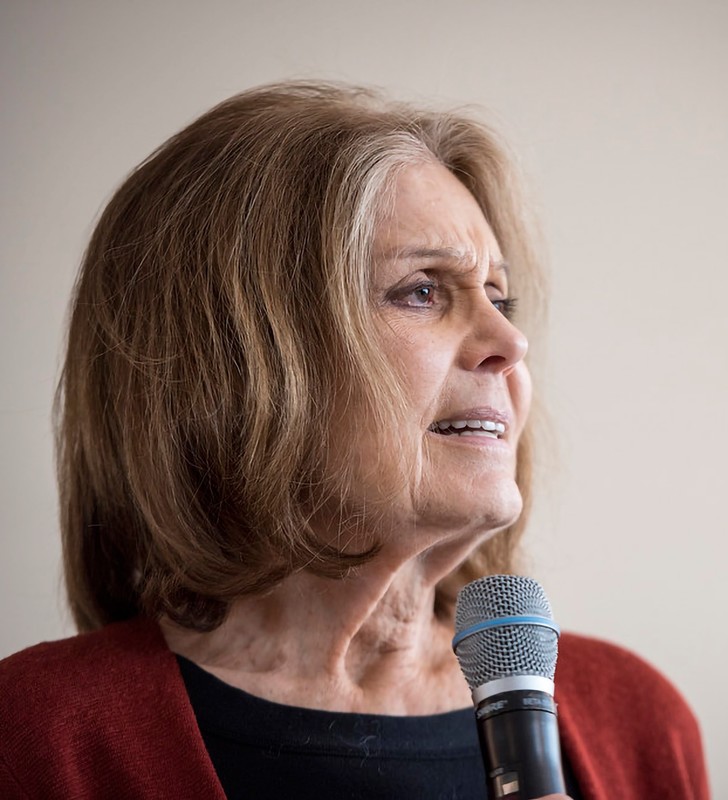How do you speak out?
How do you speak out?
Women advocate for their rights in many ways, from parades to publications to simply saying something when they see injustice. Change is accomplished when women show up, speak up, or pick up a pen to make their individual and collective voices heard.
“I just raised my hand.”
Rhiannon Childs, 2019
Columbus, Ohio, native Rhiannon Childs (1978-present) volunteered in 2016 to serve as Executive Director for Women's March Ohio. She has since become involved with many activist organizations, including Confront White Womanhood, which she co-founded. Childs currently works with the Ohio Women’s Alliance to promote collaboration for organizers across Ohio.
“We need all the women who are accustomed to speak in public – every stick of timber, that is sound.”
Lucy Stone, 1850
When Lucy Stone (1818-1893) graduated from Oberlin College in Oberlin, Ohio, in 1847, she declined to write a commencement speech that would be delivered by a man. She spent her life advocating publicly for women’s rights and earned more as a speaker than many of her male counterparts.
“I have already said enough to secure the disapprobation which is always bestowed upon a woman who thinks and speaks for herself.”
Jane Elizabeth Jones, 1850
Born in New York, Jane Elizabeth Jones (1813-1896) became well-known as an abolitionist and lecturer. In Salem, Ohio, she co-edited the Anti-Slavery Bugle and spoke at the inaugural Ohio Women’s Convention in 1850. Jones also helped pass an Ohio law that granted limited property rights to married women.
“Lifting as we climb, onward and upward we go, struggling and striving and hoping that the buds and blossoms of our desires will burst into glorious fruition ere long. . . Seeking no favors because of our color nor patronage because of our needs, we knock at the bar of justice and ask for an equal chance."
Mary Church Terrell, 1902
Orator and civil rights activist Mary Church Terrell (1864-1954) believed in racial uplift, or full citizenship and economic independence for African Americans. “Lifting as we climb” became the motto of the National Association of Colored Women, an organization she helped found.
“. . . [I]f I had one wish for the feminist movement . . . it would be . . . a network consisting of small groups that one could easily find, small enough so that everyone can speak and everyone can listen. . . . We need these groups of diverse people . . . .”
Gloria Steinem, 2012
Gloria Steinem (1934-present) gave this quote in an interview with The Humanist after receiving the 2012 Humanist of the Year award. Born in Toledo, Ohio, she co-founded the National Women's Political Caucus, the Women's Action Alliance, the Coalition of Labor Union Women, and Ms. magazine. Steinem is still actively organizing today.
